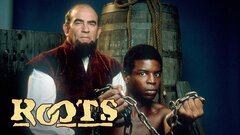Transcendent as an actor, teacher, writer, civil rights activist and much more, African-American Renaissance woman Maya Angelou was a potent mixture of the spiritual and the earthy who inspired millions with her multifaceted career. Tall (6') and proud, with a laugh as large as her formidable presence, she possessed the innate and compelling grace of a woman who had constructed a full life, one lived without concession or false excuse. Her feet, tough and covered with calluses, testified to her years studying under Martha Graham and dancing with Alvin Ailey, and her exuberance caused her to break spontaneously into song, revealing the voice of the nightclub performer and calypso singer of her first feature film, "Calypso Heat Wave" (1957).
Long one of the country's most sought-after speakers, she first gained widespread critical attention for her autobiographical "I Know Why the Caged Bird Sings" (1969), recounting the story of her rape at the age of eight and the five years of silence that ensued, during which she listened intensely and found the unique voice of the poet she was born to be. Upon her death on May 28, 2014, the United States and the world as a whole mourned the loss of a singular artistic and humanitarian vision.
Born Marguerite Johnson in St. Louis and raised in the small town of Stamps, Arkansas, the young Angelou began her career as a stage performer in San Francisco and New York, adopting the name Maya Angelou from a childhood nickname and the surname of her first husband, Greek musician Tosh Angelos. Acting performances in New York productions of "Cabaret for Freedom" (1960), which Angelou also produced, and Jean Genet's "The Blacks" (1961) preceded her move to Africa. She lived first in Cairo and worked as editor of The Arab Observer (the only English-language news weekly in the Middle East) before beginning her academic career at the University of Ghana.
Two of her plays, "The Least of These" and "The Clawing Within," received U.S. productions in 1966, as did "Adijoa Amissah" the following year. Her songwriting for the feature "For Love of Ivy" (1968) brought her into collaboration with producer Quincy Jones, and she later wrote the songs and screenplay for "Georgia, Georgia" (1972), the interesting but uneven story of a black singer's involvement with a white photographer in Sweden. Angelou earned a Tony nomination for her Broadway acting debut in "Look Away" (1973).
After writing and directing the short "All Day Long" (1974) for the American Film Institute, she wrote and directed the musical "And Still I Rise" in 1976, later publishing a book of poetry of the same name two years later. She returned to acting as part of the all-star cast of ABC's landmark miniseries "Roots" (1977) and then helped adapt the TV-movie version of "I Know Why the Caged Bird Sings" (CBS 1979). Once the northern coordinator for the Southern Christian leadership at the request of Martin Luther King Jr. himself, Angelou received appointments during the 1970s to the Bicentennial Commission (from Gerald Ford) and the National Commission on the Observance of International Women's Year (from Jimmy Carter).
During the '80s, her fame soared, primarily on the strength of her poetry, but she also wrote the screenplay for the NBC TV movie "Sister, Sister" (1982) and the premiere episode of Oprah Winfrey's short-lived drama series "Brewster Place" (ABC 1990), as well as works of prose. The 1990s saw an explosion of creativity from the prolific and eclectic Angelou. One of Bill Clinton's favorite poets, she presented the poem "On the Pulse of Morning" which she wrote especially for his inauguration as the 42nd President of the United States in 1993, increasing the demand for her deeply resonant and lilting voice.
That same year she also supplied the poetry written by the character of Justice (Janet Jackson) in John Singleton's "Poetic Justice" and played Lelia Mae in the ABC TV movie "There Are No Children Here," starring Oprah Winfrey. In addition, she portrayed Alfre Woodard's mother in the female ensemble drama "How to Make an American Quilt" (1995). Angelou made numerous appearances as herself on TV and served as a host or narrator for a variety of children's shows, such as "Elmo Saves Christmas" (PBS 1996).
As for features, she narrated "The Journey of August King" (1995), provided music and narration for the "Perfect Moment" (1996) documentary, and wrote the screenplay for "Angelou on Burns" (1996), in which she explores her passion for the poetry (and life) of Robert Burns. As if her many accomplishments were not enough, she added to them with her feature directorial debut in 1998. Cast and crew of "Down on the Delta" marveled at her extraordinary vitality and stamina in making a solid and affecting piece of work that emphasized simple truths and intelligent optimism while placing great stock in the strength of family ties and the soul-enhancing value of returning to roots.
As she entered the 21st century, Angelou remained an active presence on the lecture circuit and published two memoirs, A Song Flung Up To Heaven (2002) and Mom & Me & Mom. Maya Angelou died May 28, 2014 at her home in Winston-Salem, North Carolina. Among the many tributes that followed, President Barack Obama said, "With a kind word and a strong embrace, she had the ability to remind us that we are all God's children; that we all have something to offer."

































































